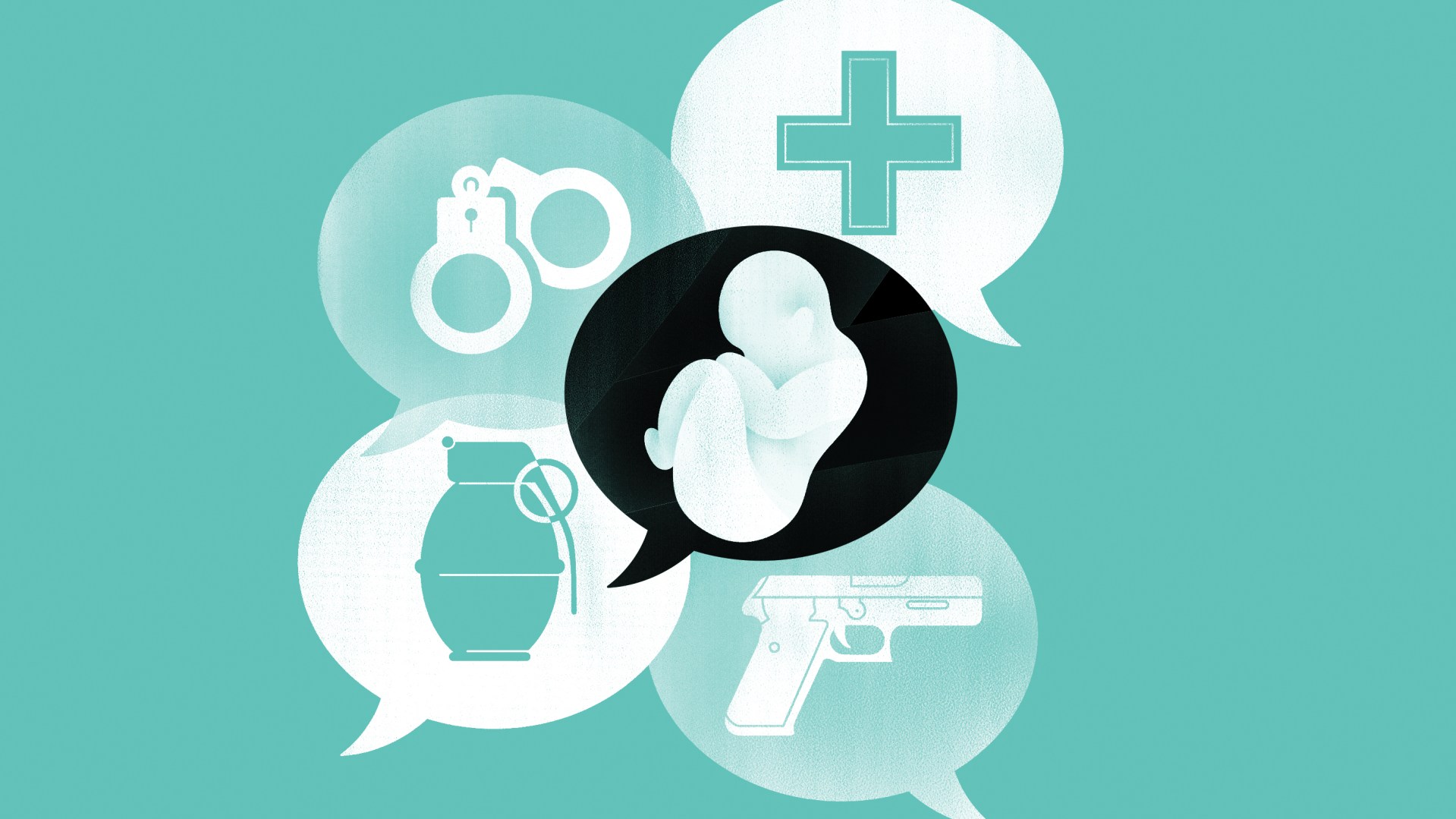Spend enough time arguing against abortion, and you’re certain to deal with accusations of hypocrisy and inconsistency. If you were really pro-life, critics say, there are other, outside-the-womb causes you would champion just as ardently.
In a 2004 interview with PBS host Bill Moyers, Joan Chittister, a Benedictine nun and social activist, gave voice to this common complaint. “I do not believe,” she said, “that just because you’re opposed to abortion that that makes you pro-life. In fact, I think in many cases, your morality is deeply lacking if all you want is a child born but not a child fed, not a child educated, not a child housed. And why would I think that you don’t? Because you don’t want any tax money to go there. That’s not pro-life. That’s pro-birth. We need a much broader conversation on what the morality of pro-life is.”
Does the pro-life movement have too narrow a focus? Recent Republican efforts to reform our health care laws have vaulted this question back into the spotlight. Opponents ripped the Republicans’ plans as depriving our most vulnerable citizens of health insurance coverage. And they wondered why pro-life conservatives in Congress would neglect going to bat for low-income women—those at greatest risk, in their desperation, of making an appointment with Planned Parenthood.
Both friends and foes are always urging pro-lifers to update their list of priorities. A genuine ally of unborn life, they might say, should also oppose the death penalty. Or lobby for restrictions on gun ownership. Or protest America’s wars. Or fight cutbacks to government programs. Or demand action on climate change. Some even lump campaigns against smoking or obesity among pro-life imperatives.
Of course, not all charges of hypocrisy are made in good faith. Less principled pro-choicers will seize on any excuse to paint pro-life conviction as a pious sham. And no amount of “consistency” on other issues will impress them enough to drop their agitation.
More compelling, however, are protests raised by fellow believers who truly desire justice for the unborn. Perhaps, like Cardinal Joseph Bernardin, former archbishop of Chicago, they imagine pro-life witness as a “seamless garment” stitched together from opposition to abortion, euthanasia, capital punishment, unjust war, and social inequalities. Perhaps they worry about appearing like single-issue fanatics. Most likely, they are simply warm-hearted people who affirm the God-given dignity of every human being and yearn to give that truth the widest possible application.
Even so, pro-lifers ought to exercise caution about packaging abortion into proposals for a “consistent ethic of life.” Consistency is a virtue when comparing like to like. But different issues raise different moral questions. The case against abortion rests upon the innocence of the child in the womb, who has done nothing to deserve being deliberately killed. Capital punishment, however, brings guilt into the equation. To be sure, real-world death-penalty debates raise the specter of wrongful convictions—to say nothing of racial or class disparities that influence who lands on death row. But the core question—how to punish the most heinous of crimes—requires a different moral calculus.
“Womb to tomb” pro-life discourse also has a habit of confusing means and ends. The abortion debate poses an irreconcilable conflict. One side believes the unborn child deserves protection from lethal violence, and the other side doesn’t. As the late Richard John Neuhaus might have put it, “we the people” are disputing who belongs to the “we”—and falls within its circle of privileges and protections.
But when we turn our attention to alleged pro-life blind spots, like affordable health insurance or runaway gun violence, we confront a rather different terrain. The two (or three, or four . . .) sides agree on where to go but differ on how to get there. Everyone favors providing high-quality, reasonably priced health care to the largest numbers. But people of sound mind and goodwill divide over the ideal breakdown of market incentives, government mandates, and private charity. Likewise with gun violence: Everyone favors safe communities, but the repercussions of private gun ownership—does it enable self-defense or encourage aggression?—remain up for debate.
None of which implies that a pro-life ethic has no bearing on issues beyond abortion. It would be a sadly blinkered pro-life conscience that took no account of how public policy—in areas like health care, welfare, or maternity leave—might weigh upon an anxious mother-to-be, perched precariously between the abortion clinic and the crisis pregnancy center.
Who can doubt that pro-lifers, being fallen, sometimes let partisanship cloud their judgment? But it’s folly to imagine we can police hypocrisy by announcing the “pro-life” position on everything under the sun—much less by shaming everyone who will not get with the program.
Matt Reynolds is an associate editor at Christianity Today.
Do you agree? Disagree? Let us know here.










